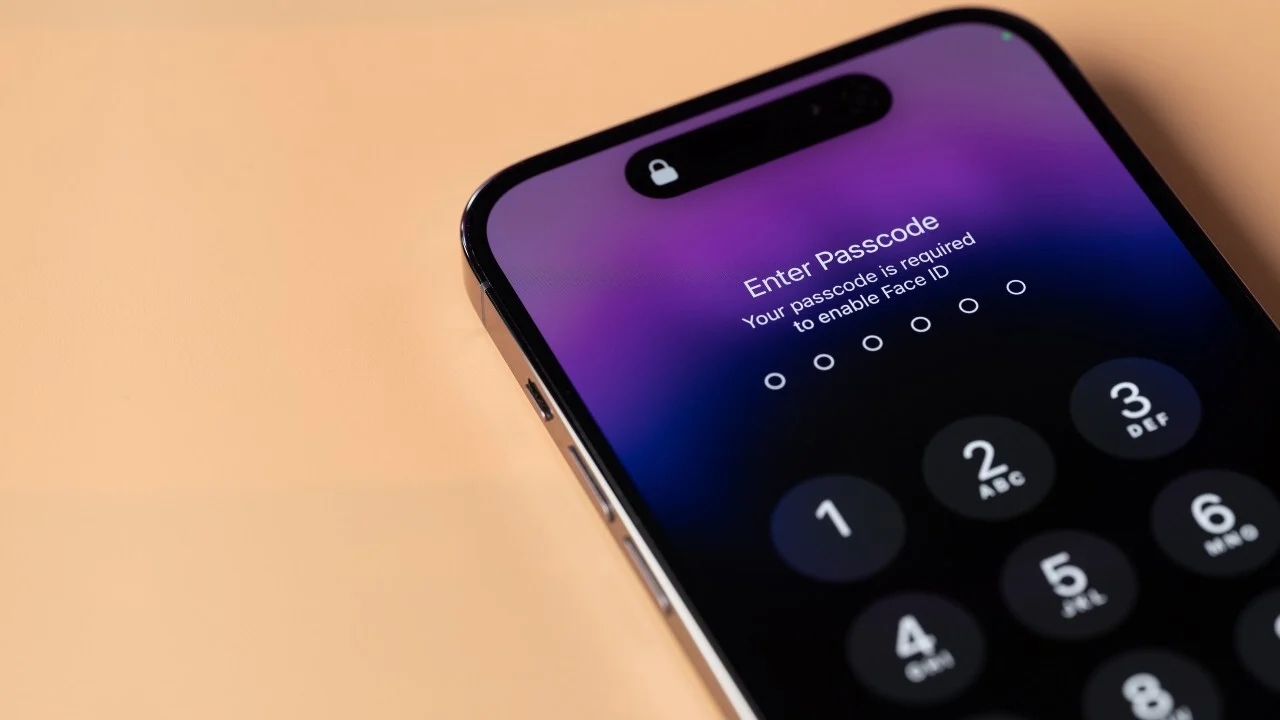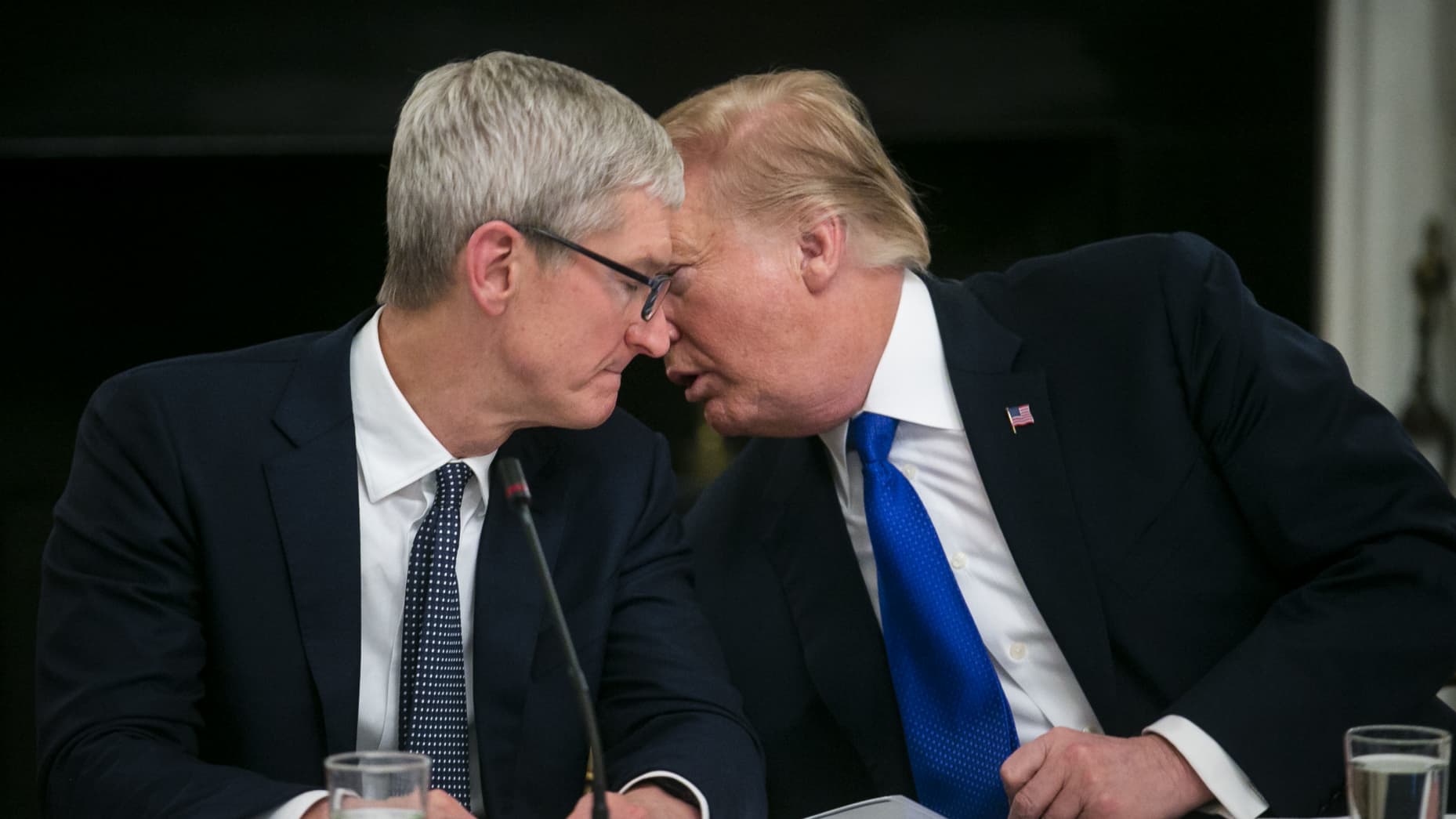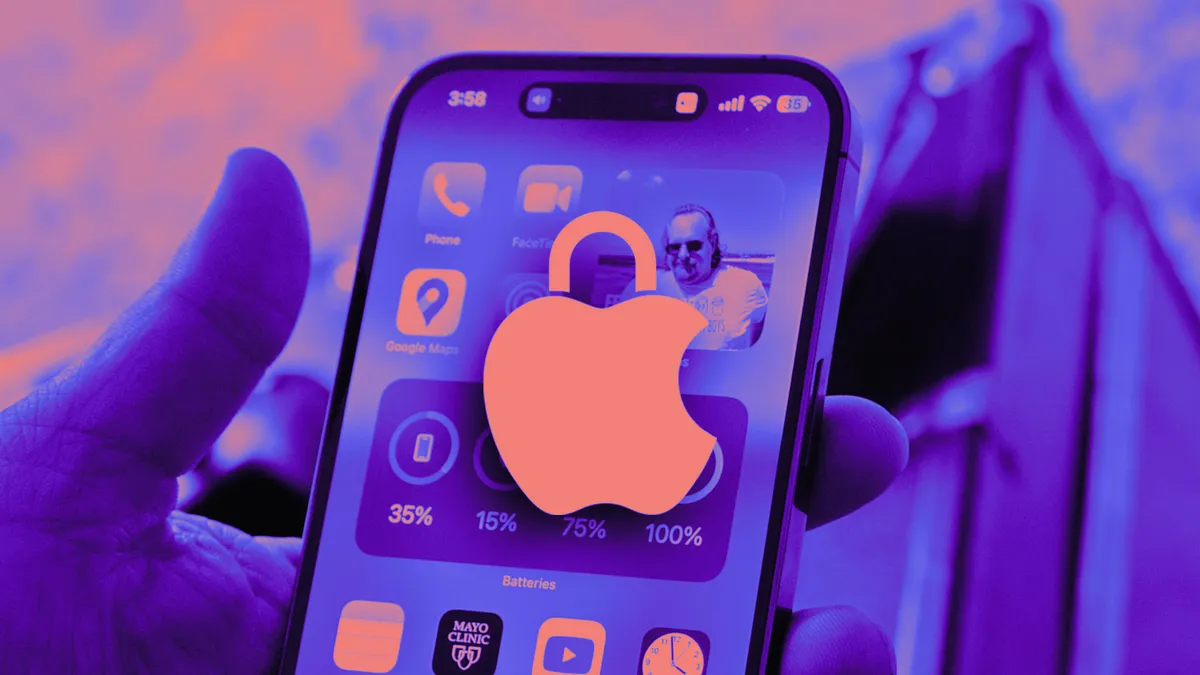Here's Why Trump’s Push to Unlock Encrypted iPhones Won’t Work
- Trump is not happy with Apple—find out why they won’t unlock their iPhones.
- Another encryption showdown... and Apple is holding its ground again.
- This isn’t the first time Apple’s has said no to a request to break encryption—here’s the latest twist.
Apple Inc. is under the microscope today as former President Donald J. Trump urges the tech giant to assist the FBI in unlocking iPhones belonging to the individuals accused of attempting to assassinate him. Trump’s request reflects a common misunderstanding about encryption—a technology designed to protect user data, even from the manufacturer. So today, let's talk about encryption, and why it's impossible for Apple to comply with Trump's request. Photo via PCMag // Encryption on iPhones protects user data—even Apple can’t access it without the devices passcode.
Photo via PCMag // Encryption on iPhones protects user data—even Apple can’t access it without the devices passcode.
Trump Demands Apple’s Help
In recent months, there have been two failed assassination attempts on Donald Trump, the Republican nominee for United States President. Law enforcement have retrieved multiple phones belonging to the alleged perpetrators, but they’ve hit a roadblock—encryption. At a rally in North Carolina on Wednesday, Trump voiced his frustrations, urging Apple to step in.
They must get Apple to open the foreign apps, and they must get Apple to likewise open the six phones from the second lunatic.— Trump stated, according to Bloomberg
The phones in question belong to Thomas Matthew Crooks, who shot at Trump during a July rally, and Ryan Wesley Routh, apprehended after a shootout at Trump’s Florida golf club. Despite the FBI’s efforts, they have been unable to access the devices or the data within several encrypted apps. Photo via The New York Times // Pictured: Tim Cook (left) and Donald Trump (right). Former President Donald Trump is calling on Apple to unlock iPhones linked to recent assassination attempts.
Photo via The New York Times // Pictured: Tim Cook (left) and Donald Trump (right). Former President Donald Trump is calling on Apple to unlock iPhones linked to recent assassination attempts.
Why Apple Can’t Comply: Encryption Explained
The former president's plea illustrates a widespread misconception. Many believe that because a device manufacturer, like Apple, creates their own hardware and software, they must be able to unlock encrypted data on request. However, this simply isn’t the case.
Encryption, by design, prevents any party—except the user with the passcode—from accessing the device's contents. Even Apple itself is locked out once encryption is applied.
Apple has been clear on its stance. According to a company statement:
End-to-end encrypted data can be decrypted only on your trusted devices where you’re signed in to your Apple Account. No one else can access your end-to-end encrypted data—not even Apple.— Apple Inc.
This ensures that all sensitive data on iPhones, such as messages on iMessage or calls on FaceTime, remains private unless the device’s owner provides the necessary access credentials. Without the passcode, not even Apple can bypass this encryption. Photo via CNET // Apple’s refusal to unlock encrypted devices has sparked a broader debate about privacy vs. security.
Photo via CNET // Apple’s refusal to unlock encrypted devices has sparked a broader debate about privacy vs. security.
A Broader Debate: Security vs. Privacy
This is not the first time law enforcement has demanded a way around encryption. In the past, calls for a “backdoor” to access encrypted data have gained traction. Law enforcement agencies argue that such a feature is essential for cases involving terrorism, serious crime, and, in this case, attempted assassination.
But the risks are clear. Security experts warn that creating a backdoor for law enforcement also creates a vulnerability for hackers. In short, any backdoor accessible to law enforcement could be exploited by malicious actors, jeopardizing the privacy of millions of users worldwide.
Apple executives have consistently emphasized privacy as a core value of the company. As a result, the company has stood firm against government demands, despite intense pressure from law enforcement and political figures like Trump.
In response to previous government requests to unlock phones, Apple has made its position clear:
If encryption could be easily bypassed, it would defeat its very purpose. Privacy is a fundamental human right.— Apple Inc.
Historical Context: The Ongoing Struggle
This latest request from Trump is reminiscent of his earlier clashes with Apple during his presidency. In 2021, Trump criticized the company for refusing to unlock the iPhone of a Royal Saudi Air Force lieutenant accused of killing three U.S. sailors. Back then, Apple maintained its position, rejecting demands to create a backdoor for authorities.
Now, just a day after being briefed by the Office of the Director of National Intelligence on new threats from Iran, Trump’s request comes at a time of heightened political tension. Iran has reportedly targeted Trump and his administration officials following the assassination of Iranian general Qassem Soleimani in 2020. Despite these circumstances, Apple’s commitment to privacy remains unchanged.
The Takeaway: No Exceptions
Apple is unlikely to bend under pressure—whether from Trump or any other figure. The company has long maintained that it cannot and will not create tools that would undermine encryption, regardless of the circumstances.
As one industry commentator put it:
It’s all or nothing; nothing or all. There is no ‘one time only’ exception.
The debate between security and privacy is far from over, and with Apple refusing to alter its stance, Trump’s demand may fall on deaf ears.
Recommended by the editors:
Thank you for visiting Apple Scoop! As a dedicated independent news organization, we strive to deliver the latest updates and in-depth journalism on everything Apple. Have insights or thoughts to share? Drop a comment below—our team actively engages with and responds to our community. Return to the home page.Published to Apple Scoop on 26th September, 2024.
No password required
A confirmation request will be delivered to the email address you provide. Once confirmed, your comment will be published. It's as simple as two clicks.
Your email address will not be published publicly. Additionally, we will not send you marketing emails unless you opt-in.